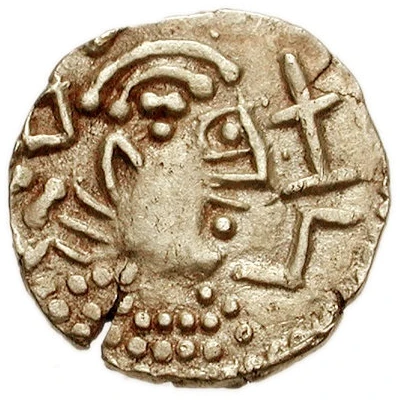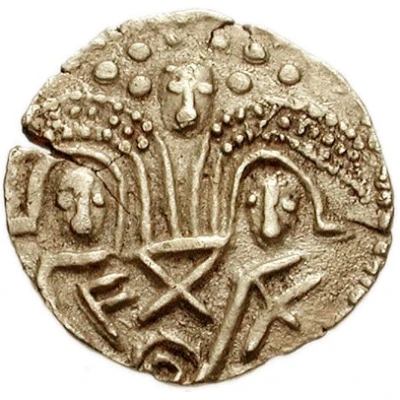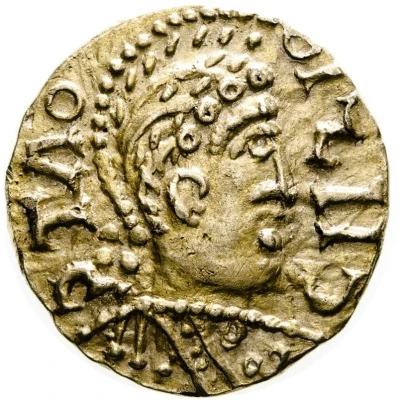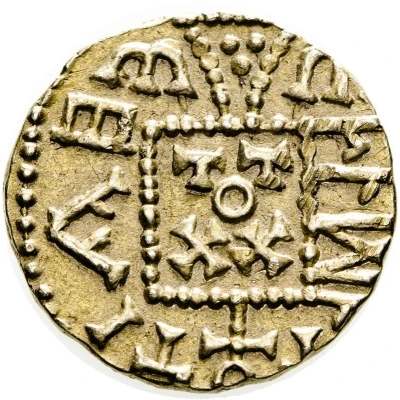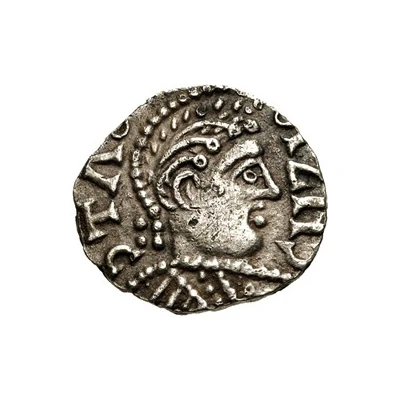
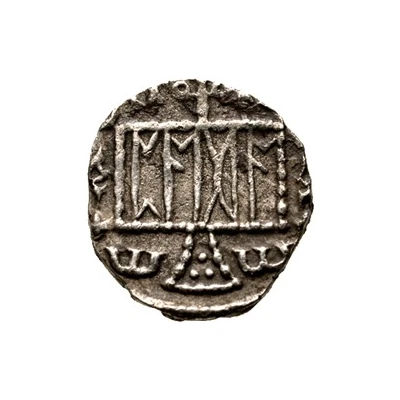

© Classical Numismatic Group, Inc.
Thrymsa 'Pada'; Type Ia
| Electrum | 1.22 g | 13 mm |
| Issuer | Early Anglo-Saxon (Kingdoms of British Isles and Frisia) |
|---|---|
| Type | Standard circulation coin |
| Years | 655-675 |
| Value | 1 Thrymsa |
| Currency | Thrymsa (600-675) |
| Composition | Electrum |
| Weight | 1.22 g |
| Diameter | 13 mm |
| Shape | Round (irregular) |
| Technique | Hammered |
| Orientation | Variable alignment ↺ |
| Demonetized | Yes |
| Updated | 2024-10-09 |
| Numista | N#121138 |
|---|---|
| Rarity index | 97% |
Reverse
PADA in runes on tablet, cross above; below, tufa between two omegas, legend around.
Script: Runic
Lettering: ᛈᚨᛞᚨ
Translation: Pada.
Comment
Early Anglo-Saxon period (c.600-c.775), Thrymsa coinage (c.600-c.675), Post-Crondall types (c.655-c.675).Pale gold types, visibly debased and sometimes almost silvery, containing 10-35% gold.
Thought to be minted in Kent.
Interesting fact
One interesting fact about the Thrymsa coin is that it features a unique blend of Christian and pagan elements in its design. The obverse side of the coin depicts a cross, which symbolizes the Christian faith, while the reverse side features a image of a bird, which is believed to represent the pagan belief in the importance of birds as messengers between the natural and supernatural worlds. This blending of religious symbols reflects the cultural and religious diversity of the Early Anglo-Saxon period and highlights the complexities of the transition from paganism to Christianity during this time.
